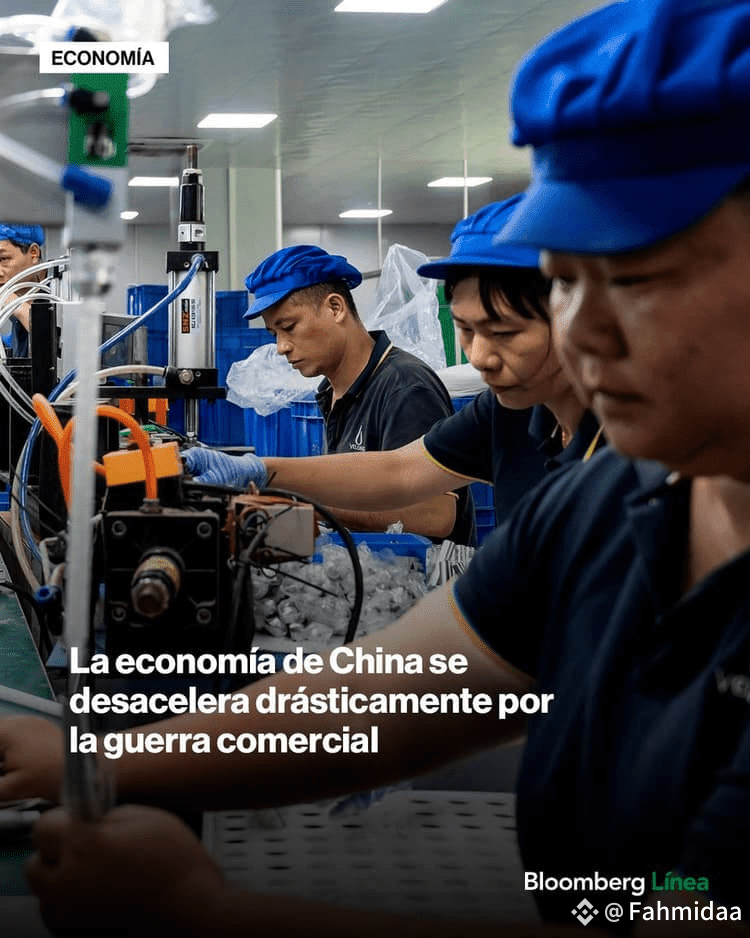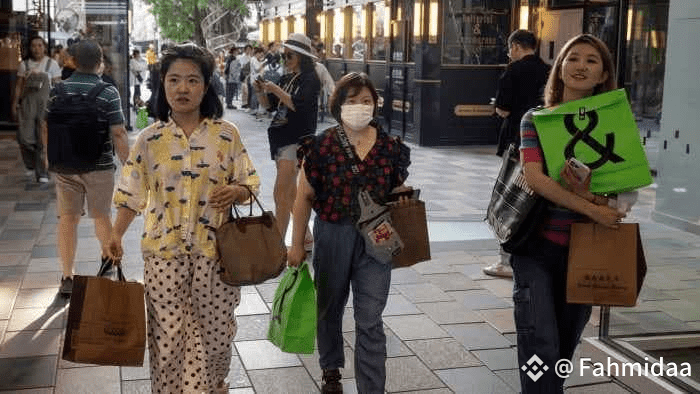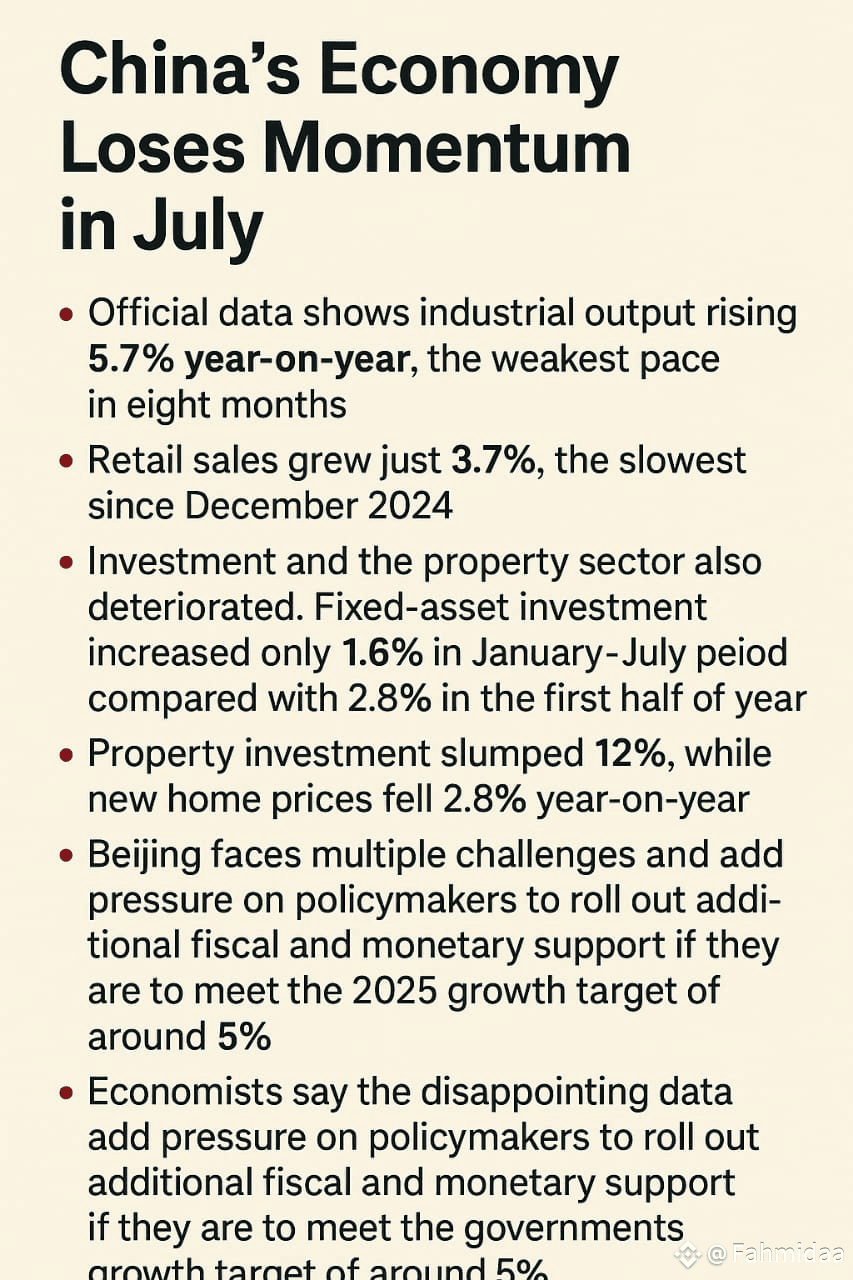China’s economy slowed in July, with official data showing industrial output rising just 5.7% year-on-year—the weakest pace in eight months. Retail sales grew only 3.7%, the slowest since December 2024. Figures from the National Bureau of Statistics fell short of expectations, highlighting a broad deceleration at the start of the third quarter.

Investment and the property sector also deteriorated. Fixed-asset investment rose only 1.6% in the January–July period, compared with 2.8% in the first half of the year. Property investment slumped 12%, while new home prices fell 2.8% year-on-year, eroding household wealth and dampening consumption. The urban unemployment rate edged up to 5.2% as fresh university graduates entered the job market, while new yuan lending shrank for the first time in two decades—signaling weak credit demand.

Beijing faces multiple challenges. U.S. President Donald Trump’s tariffs and an uneasy trade truce have kept businesses cautious about future levies. At home, measures to curb fierce price competition, extreme weather disruptions, and a prolonged real-estate downturn are further weighing on production and spending.
Economists say the disappointing data add pressure on policymakers to roll out additional fiscal and monetary support if they are to meet the 2025 growth target of around 5%. A Reuters poll now projects GDP growth to slow to 4.5% in the third quarter and 4.0% in the fourth, raising the stakes for upcoming policy meetings.
#ChinaEconomy #EconomicSlowdown #RetailSales #IndustrialOutput  #MarketTurbulence
#MarketTurbulence
